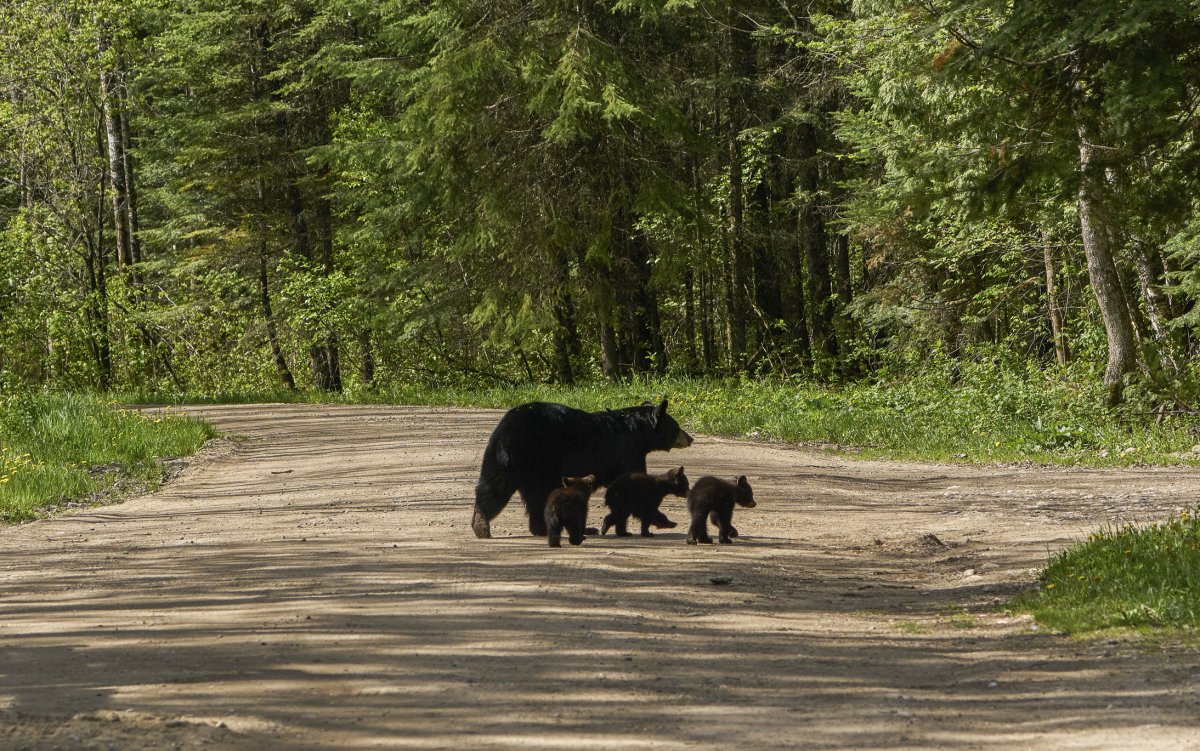A family of black bears has been found holed up under the decking of a house in Nisswa, Minnesota.
A trio of landscape architects spotted the mother and her two cubs at the property of one of their clients.
The yard had been trashed, with garden furniture and half-eaten bushes and plants scattered around the place.
The landscapers, Amber Reece, Ashley Zimmerman and Hanah Schmit, were in the process of cleaning up the mess when they spotted the bears under the decking of the house.
They then called the Minnesota Department of Natural Resources (DNR), which sent conservation officers to the scene, one of whom managed to coax the adult bear out by poking a stick through the decking from above.
The cubs quickly followed their mother out, and they all fled into nearby woodland.
A video of the encounter has been posted online by Copper Creek Garden Center and Market, the company that Reece, Zimmerman and Schmit work for.
An exciting day for our landscaping girls! They were doing their Fall Cleanup rounds as usual and arrived to one of their client’s properties and things...
"An exciting day for our landscaping girls! They were doing their Fall Cleanup rounds as usual and arrived to one of their client's properties and things were not right! Hydrangea bushes and plants eaten down to the stubs, and planted pots and furniture knocked over everywhere..." the post reads.
"They continued cleaning up and then, to their surprise, saw 3 bears (a momma and two Cubs) underneath the deck. They immediately called the DNR and all got out safely."
It isn't clear why this family had taken temporary residence at the property, but black bears can be attracted to homes by the smell of food.
Bears have to consume at least 20,000 calories, which is 10 times as many as they normally would, in order to fatten up for a winter of hibernation, according to BearWise.
This can require up to 20 hours of foraging each day, but that can be drastically reduced by finding an easy food source.
Black bears are omnivorous, and can be drawn to residential areas by bird feeders, fruit trees, vegetables, beehives, barbecues and composted food scraps, particularly if their natural food supplies, such as nuts and berries, are in low supply.
Man-made spaces, such as decking or vacant storage sheds, can provide an ideal den for families, as they're dark, provide shelter and can keep their cubs safe from potential predators.
Minnesota's black bear range is also expanding, according to the state's DNR, which says the animals are slowly moving southward and westward.

Uncommon Knowledge
Newsweek is committed to challenging conventional wisdom and finding connections in the search for common ground.
Newsweek is committed to challenging conventional wisdom and finding connections in the search for common ground.
About the writer
To read how Newsweek uses AI as a newsroom tool, Click here.








